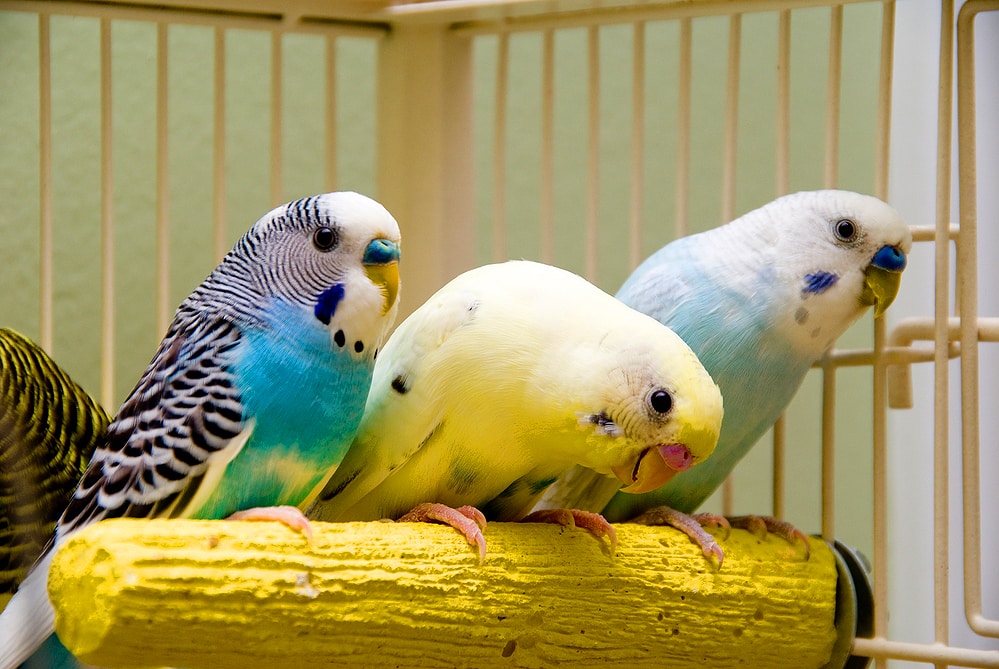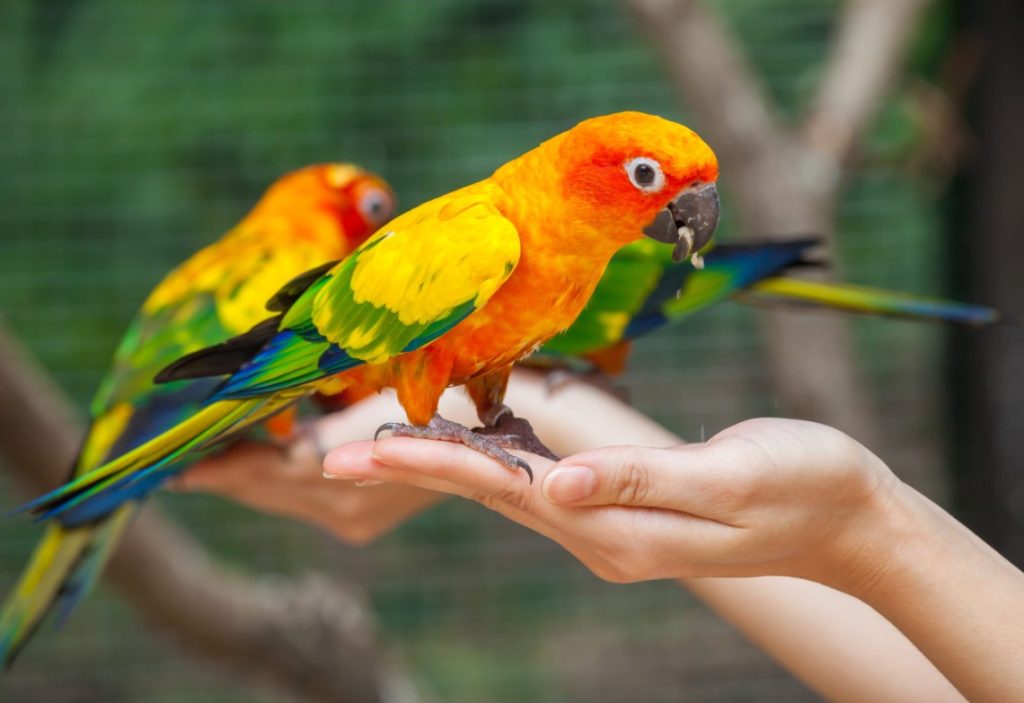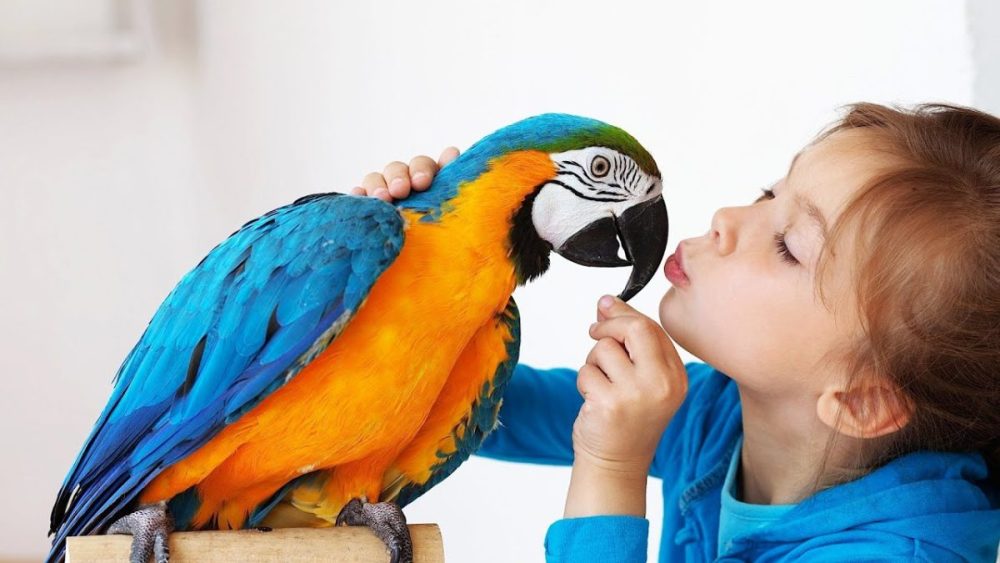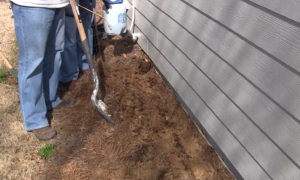If the talking parrots and colorful birds have fascinated you, you can consider getting a pet bird. Chances are that you might have already thought about its name, the location of the cage, its toys, pet bird food, the routine, and so much more.
However, it won’t be the right approach if you think the routine with a pet bird and other pet animals, like dogs and cats, is the same. They are different species, and it takes a different kind of effort and consideration to get a pet bird at your home.
So, here are 10 things that you should consider before getting a pet bird for your house that adds to the convenience and comfort.
1. The Type Of Bird That You Want
Studies show that 5 million households in the United States like having birds as pets. But, this does not mean that all have the same birds. Pet birds are of different shapes, sizes, and colors. All of them need different care, effort, and attention.
For example, a big parrot needs more attention, and you need to be around them. There are other options too that can be trained for the home, like cockatoos, African greys, and others like Amazons, that can talk, and others like macaws. However, they possess their own set of challenges, too. So, you should consider all these factors and choose accordingly.
2. Budget

Source: worldbirds.com
Getting birds as pets can be an expensive deal. However, their range can be different based on the demanded breed. A survey by the American Pet Products Association (APPA) suggests that if you consider getting a macaw bird at your place, the average spending stands at $1,212.
So, when you have decided on the kind of bird you want to get, you should have an idea about the budget bracket. The initial step is the base expenditure for getting the bird as a pet. Other expenditures add once you bring the pet home. It should be one of the considerations before getting a pet bird.
3. Refrain Using Air Fresheners Or Scented Candles
It would help if you tried not to use air fresheners or scented candles when you have birds around. They will hurt the bird’s health. There are many do’s and don’ts while taking a pet bird with you to different places. Try and cater to them at home and also during holidays. If you are worried about taking your bird along, you should try bird boarding with service providers like sanfranciscobirdhotel.com for a paradise-like experience.
4. Vacuum Cleaners Are A Must
You need to cater to many other things for the benefit of your feathered friends. One of them is maintenance in the house, near the entrance, and on the balcony. Birds will create a mess, for it is their natural habitat. Be it dropping the food particles or shedding their feathers, cleaning can take a lot of time. So, you can take the responsibility of cleaning it up. You can consider investing in a good vacuum cleaner.
5. Routine Changes

Source: exoticskeeper.com
Birds are energetic throughout the day from the moment they wake up. You have to start getting up early and bring some changes to your routine too. You should first cover the bird’s cage with a light-colored cloth like white, blue, or yellow. It will help birds wake up comfortably and reduce the effect of the direct sun rays.
Also, keep your birds in open spaces in the house where they can hear outside noises. It will help them understand the surroundings better. Also, they will begin waking up when they hear the sounds of birds living on the trees outside.
6. Smoking At Distant Locations
Smoking is a bad trait and worse for pets like birds at home. If you want to consume tobacco and other products, keep a safe distance from pets and open the windows for cross-ventilation. Also, it would help if you took precautions like bathing or washing hands to touch your pets after smoking.
Also, if you think of smoking in the house and using perfume to let it settle, it will hurt your bird’s health. Try and do it outdoors or wash up properly before greeting your bird.
7. No Toxic Plants Around
It might sound bizarre, but the truth is that some household plants can be toxic for pet birds. For example, if you love having amaryllis flowers and lilies and are planning to get them at your home along with birds, you should reconsider it. Also, try and avoid having anything like shamrocks and philodendrons. Your bird will fly around them and end up deteriorating its health.
If you are a plant lover and want something around your bird, consider going for an African violet or spider plant. It will enhance the beauty of the place and is bird-friendly, too.
8. Plastic Cookware

Source: foodmatters.com
It would be best if you refrained from using plastic cookware and other utensils made of nonstick or Teflon. When you have birds around in your home, the coating of these materials emits a toxic fume that can be life-threatening for birds. The fume emission results when cookware is lit to a higher temperature.
9. Noise And Dirt
Some pet birds can talk while others can make sounds like chirping, screeching, cackling, and cooing. The voices are different for different times of the day, like morning, evening, and when they are hungry.
Small birds chatter. Large-sized birds have loud vocals, and hence, they can emit a higher sound. So, you should prepare yourself to hear such sounds and dirt in the form of their waste, dropping food particles, and other items.
10. Care
Birds are raw creatures, so it takes time, energy, and effort to shape their personality. Don’t expect the bird to be friendly and act like a social butterfly from the first day. They have their own likes and dislikes, and all pet parents should care for the same. Pet parents should take mandatory steps like healthy food items, cage cleaning, and spending some hours to know about the birds, their likes and dislikes, and their physical and mental well-being.
Conclusion
Birds are amazing as pets and, of course, live as your forever friends in your home. Their company is wholesome and a once-in-a-lifetime kind of experience! So, consider these points before getting a pet bird so that it is a good idea for the house in-mates and birds.



















